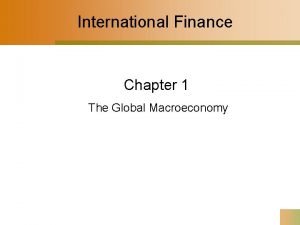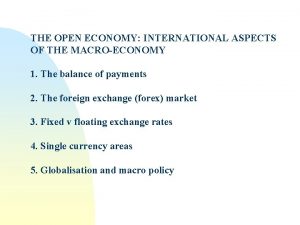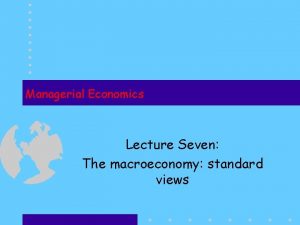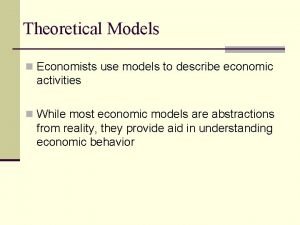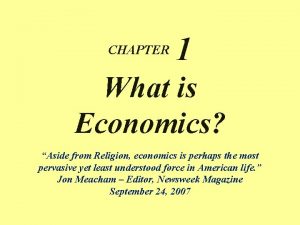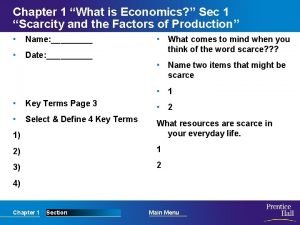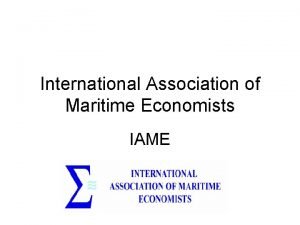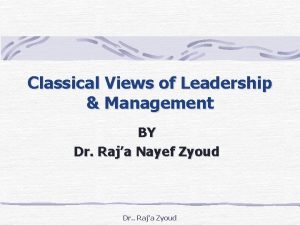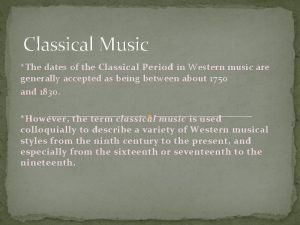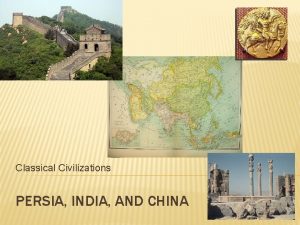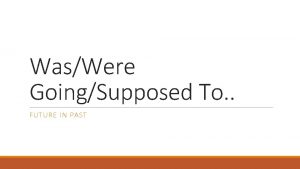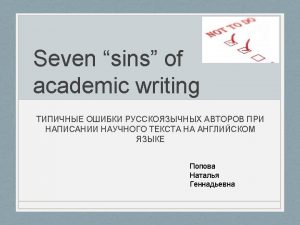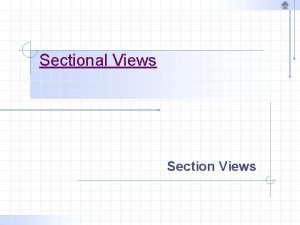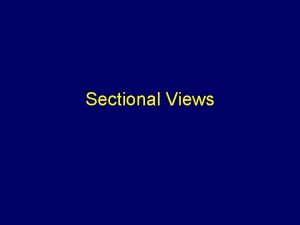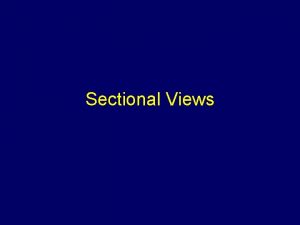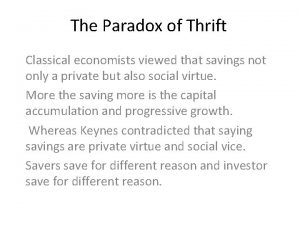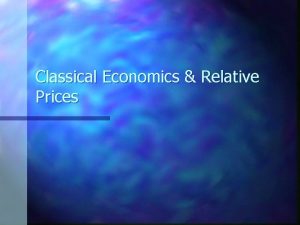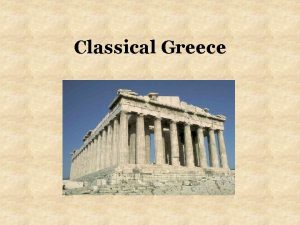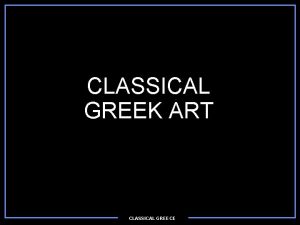Classical Views on the Macroeconomy Classical economists were
















- Slides: 16

Classical Views on the Macroeconomy Classical economists were those beginning with Adam Smith, David Ricardo, John Stuart Mill, and extending to Alfred Marshall

The business cycle was called the trade cycle by the classical economists…. they felt that the economy would selfcorrect…there was no need to use the government to help the economy

Real GDP – Trend GDP Recessions go from peak to trough … expansions go from trough to the next peak Business Cycle = Trade Cycle

What was causing the business cycle? Classical economists claimed that it could NOT be a lack of demand, since the circular flow proved that expenditure must equal output. It could not be excess supply. Of course, a single market might have a surplus, but then the price would fall and output would fall and eliminate that surplus. All markets could never be in surplus for very long, since expenditure = output, always. Therefore, the problem was eliminating surpluses through reduced output and falling prices. This was a natural cycle for them. Leave the markets alone. Free markets only…. no need for government.

Prices and Quantities Move to Produce Equilibrium – It Takes Some Time

Classical economists felt that besides output (Y), there were three variables that would change to produce equilibrium in the overall economy – these were prices (P), interest rates (r), and wage rates (w) Recession P will decrease Recession r will decrease Recession w will decrease




Classical economists believed that business cycles were inevitable and even performed a good function by eliminating weak companies and low productivity workers…. thus providing a signal to them to change and do something different. Free markets must be maintained in order to allow the natural cleansing of the economy from bad business. As prices fall, spending will increase, as interest rates fall, saving falls and investment increases, and as wages fall business costs fall and unemployment decreases.

From a list of the 20 texts that shaped our times, curated by leading British academics as part of Academic Book Week, John Maynard Keynes’s The General Theory of Employment, Interest and Money was voted the most significant for modern Britain. Keynes knew what he was on to when he wrote The General Theory. In a letter to playwright and socialist George Bernard Shaw, he wrote: “I believe myself to be writing a book on economic theory, which will largely revolutionize – not, I suppose, at once but in the course of the next few years – the way the world thinks about economic problems. ” https: //www. theguardian. com/books/2017/jan/25/keynesseconomic-theory-voted-most-influential-academic-book-onbritish-life

Keynes' General Theory – from the Preface Those, who are strongly wedded to what I shall call “the classical theory”, will fluctuate, I expect, between a belief that I am quite wrong and a belief that I am saying nothing new. It is for others to determine if either of these or the third alternative is right. My controversial passages are aimed at providing some material for an answer; and I must ask forgiveness if, in the pursuit of sharp distinctions, my controversy is itself too keen. I myself held with conviction for many years theories which I now attack, and I am not, I think, ignorant of their strong points.

Keynes Denied that Prices, Interest Rates, and Wages would Adjust 1. Companies would not reduce their prices so quickly. The reason is that most companies would think that lowering their prices would be matched by competitors. Therefore, no benefit from reducing prices. 2. Even if interest rates fell, investment would continue to fall because of a loss of confidence and thus lower rates would not stimulate investment spending. Keynes also felt the interest rate would have difficulty falling because during the recession many people would seek to hold more money and sell their bonds, lowering bond prices and raising interest rates. 3. Wages may not fall because workers would refuse to accept the cuts. Even if wages fall, if they are expected to continue to fall, investment may not be stimulated.

Basic Structure of the Keynesian Model has Four Big Markets (supply and demand in each) 1. Good and Services Market 2. Money Market 3. Non-Money Asset Market 4. Labor Market

Walras' Law Note that if three of the markets are in equilibrium then the fourth market must also be in equilibrium also.

We will be looking at goods, money, and labor market equilibrium in our study of the Keynesian model This model will show that output, interest rates, prices, and wages will adjust to produce equilibrium. The model is called the IS-LM, AS-AD model.
 Macroeconomy
Macroeconomy Macroeconomy
Macroeconomy Macroeconomy
Macroeconomy Economists use models to
Economists use models to Economists group industries into distinct market structures
Economists group industries into distinct market structures Economists assume that firms seek to
Economists assume that firms seek to To help unscramble cause and effect, economists
To help unscramble cause and effect, economists Chapter 1 section 1 scarcity
Chapter 1 section 1 scarcity International association of maritime economists
International association of maritime economists Classical views of leadership and management
Classical views of leadership and management Dates of the classical period
Dates of the classical period The two classical civilizations of ancient india were the
The two classical civilizations of ancient india were the Was/were going to and was/were supposed to
Was/were going to and was/were supposed to V cc
V cc Phép trừ bù
Phép trừ bù Chúa sống lại
Chúa sống lại Hình ảnh bộ gõ cơ thể búng tay
Hình ảnh bộ gõ cơ thể búng tay
